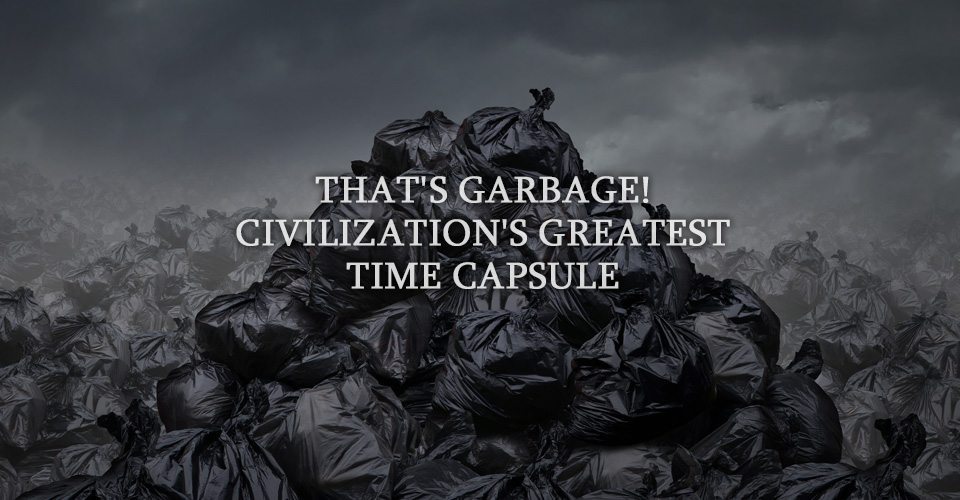
Garbage in and of itself doesn’t seem particularly interesting. After all, this is the stuff we discard because we don’t need it anymore. We’ve used it up or worn it out; we’ve upgraded and it’s now outdated. The Voyager spacecraft that travel beyond our solar system contain, in addition to a considerable amount of scientific equipment, a golden record each with a record of human civilization’s greatest accomplishments, scientific and otherwise…a time capsule, if you will. Of all of the images and documents on these disks, records of our landfills and waste removal facilities are not part of these time capsules.
“Intelligence is sexy” t-shirt?!
While we may not consider our garbage an important indicator of who we are, archaeologists would beg to disagree.
Sifting through ancient trash piles -the academic term for them is “middens”- has provided a wealth of information about human cultures. Archaeologists sifting through middens close to Rome unearthed over 25 million containers of olive oil, for example, showing that ancient Romans were heavy users of the stuff. More interesting, though, is that the containers themselves were mostly from Egypt and Spain, showing the importance of trade with other cultures.
Ancient Maori middens of New Zealand showed that the Maori people hunted moa and seal to the point of population decline in these species. These middens also indicate that once the populations declined to the point where they were becoming scarce, the Maori changed their diets to incorporate fish and shellfish so as to allow these other species the opportunity to recover. Perhaps modern companies fishing the seas to extinction could take a page from the Maori’s book on this particular subject.
Modern garbage is pretty interesting too, though. Public outcry in America during the 1980s about garbage prompted investigation of our landfills, which showed that disposable diapers and fast-food containers -the main source of the outcry- only accounted for less than 1% of waste. Most of it was paper and construction waste. These studies led to reforms in recycling materials, and most Americans today enjoy recycling in their communities.
The Largest Floating Structure in History Has a Very Important Ecology Job
People also lie about their garbage. A professor in Tucson interviewed people and then went through their trash: his findings were that people underreported by about half the amount of alcohol they consumed. They also dramatically underreported fat consumption…but only people who didn’t live through World War II. The Greatest Generation folks, conversely, tended to overreport the amount of fat they consumed, probably because growing up at a time when butter was rationed led to disproportionate thinking of its use throughout the rest of their lives.
So as it turns out, garbage is really fascinating. As Henry Reich puts it, “Every single time you throw something away, you’re contributing to a collective time capsule.” Kind of makes you wonder what people will think of us 3000 years from now, huh?


